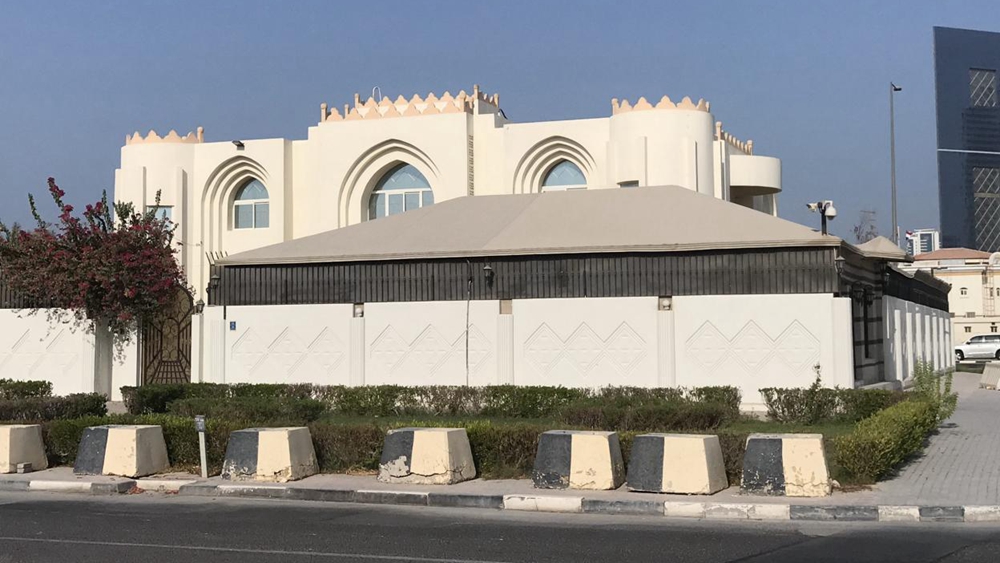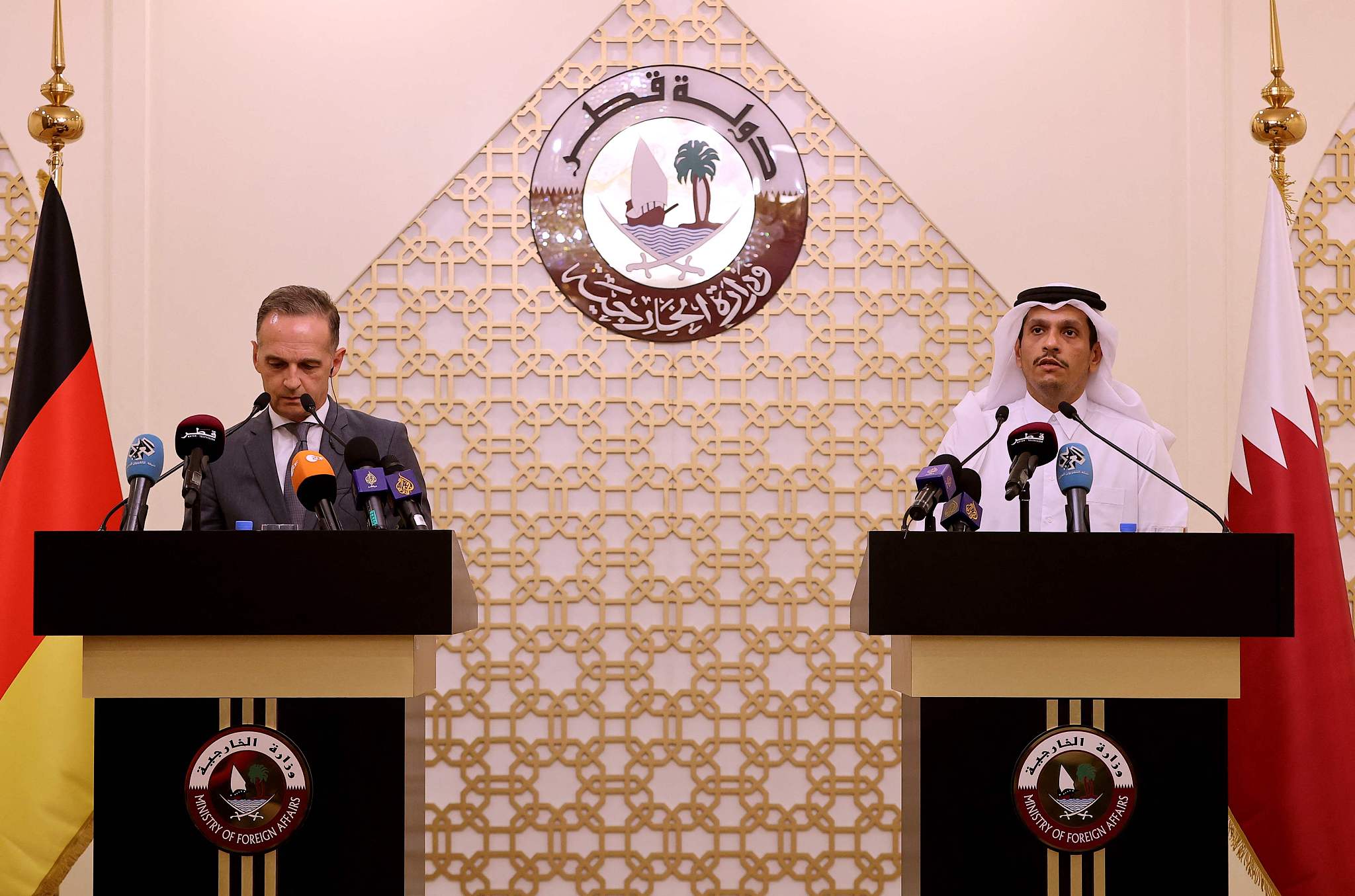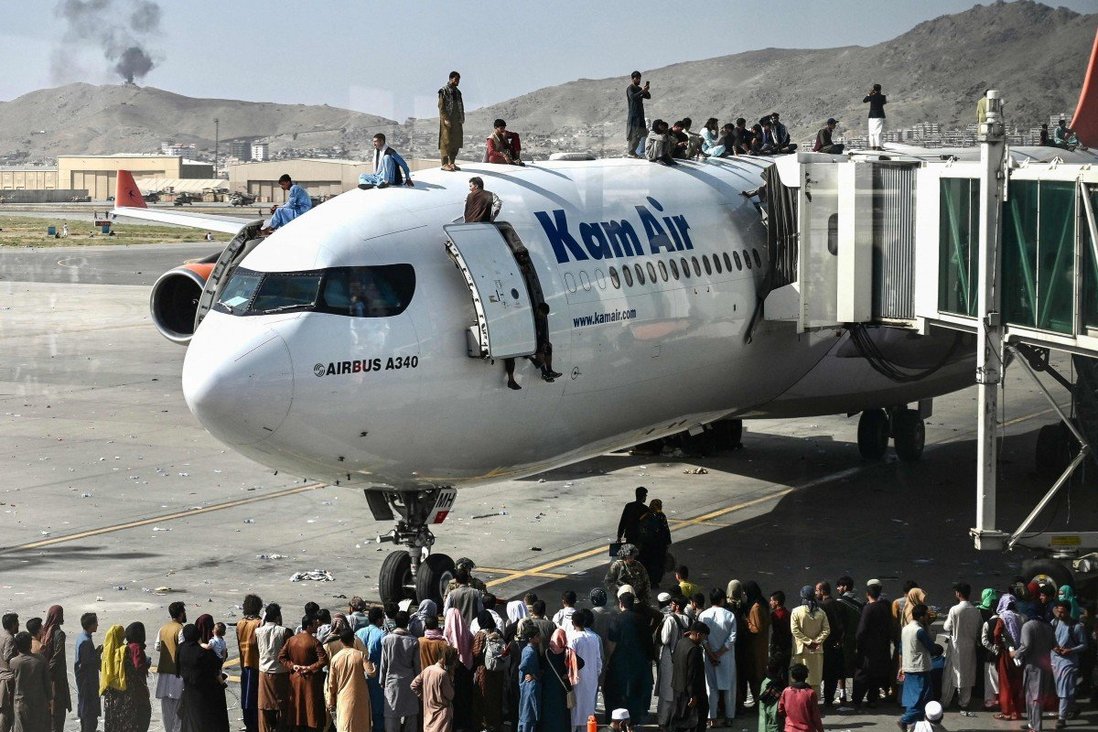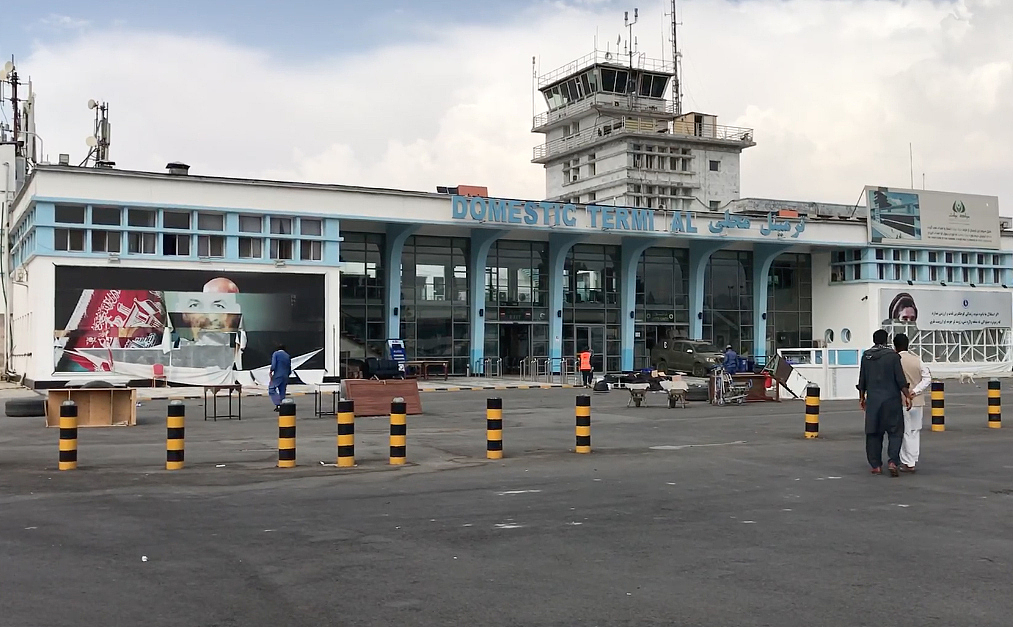The Taliban are expected to announce a new government that will lead the country following the full withdrawal of American-led foreign troops.
As international community is watching closely the development of the Afghan situation, Qatar, a country, 1,800 kilometers away from Afghanistan, has emerged as a key player.
The country has been an important window of communication between the Afghan Taliban and the international community, and it has been able to interact with both the Taliban and the U.S.
After the Taliban took full control of Afghanistan, Qatar has become an indispensable "middleman" for the U.S., Europe and other Western countries in their dealings with the Taliban.
Read more:
A closer look at Taliban Political Office in Doha

The Taliban Political Office in Doha, Qatar. Zhao Yuanfang/CMG
The Taliban Political Office in Doha, Qatar. Zhao Yuanfang/CMG
'An impartial mediator'
Qatari Deputy Prime Minister and Foreign Minister Sheikh Mohammed bin Abdulrahman Al Thani had quite a busy schedule on Sunday as U.S. Secretary of State Antony Blinken, U.S. Defense Secretary Lloyd Austin and Luigi Di Maio all visited Qatar on the same day.
Before that, German Foreign Minister Heiko Maas, Dutch Foreign Minister Sigrid Kaag and British Foreign Secretary Dominic Raab had already visited the country.
The core topic of these political figures' trips is Afghan, On the one hand, the U.S. and European countries hope that Qatar will help coordinate the evacuation of their citizens still stranded in Afghanistan, and on the other hand, they also intend to maintain communication with the Afghan Taliban through Qatar on issues such as counter-terrorism and response to the humanitarian crisis.
In addition, after the closure of embassies in Afghanistan, the U.S, the UK, the Netherlands, Japan, Italy and many other countries have announced or plan to transfer their embassies in Afghanistan to Doha, the capital of Qatar, to continue related operations.
He noted that the State of Qatar's role as an impartial mediator over the last few years between the Taliban and the U.S. and in the inter-Afghan dialogue helped build trust not just with the Taliban, but with all Afghan parties. He also stressed the importance of investing in that trust and building on it to benefit Afghanistan in the future.
The Qatari foreign minister has stressed that the State of Qatar will continue its efforts as an impartial mediator to enhance international agreement over Afghanistan, and that it will continue and coordinate will all friendly countries to ensure the interests of Afghanistan and its people.
He also urged all countries to engage with the Taliban, warning that isolating the Taliban could lead to further instability.

German Foreign Minister Heiko Maas (L) and his Qatari counterpart Sheikh Mohammed bin Abdulrahman Al Thani give a press conference in Doha, August 31, 2021. /CFP
German Foreign Minister Heiko Maas (L) and his Qatari counterpart Sheikh Mohammed bin Abdulrahman Al Thani give a press conference in Doha, August 31, 2021. /CFP
A transit hub for U.S. withdrawal
In fact, Qatar has played an important role as a transit hub for the U.S. and its allies in their previous withdrawals from Afghanistan.
According to statistics, the U.S. has evacuated more than 123,000 people from Afghanistan since August 14, with about 57,000 of them transiting through Qatar, and nearly 2,000 still remain at U.S. military bases in Qatar, waiting to be relocated to other countries.
In this case, U.S. Defense Secretary Austin and U.S. President Joe Biden have called the Qatari Emir Sheikh Tamim Bin Hamad Al-Thani to express their gratitude.
Qatar has also helped many Afghans evacuate safely thanks to its close relationship with the Taliban. Media reports that, led by Qatari Ambassador to Afghanistan Saeed bin Mubarak, the Qatar Embassy in Afghanistan successfully evacuated an entire girls' boarding school, including more than 250 students and staff members.

Afghan people climb atop a plane as they wait at the Kabul airport in Kabul, August 16, 2021. /AFP
Afghan people climb atop a plane as they wait at the Kabul airport in Kabul, August 16, 2021. /AFP
Technology support to Kabul airport
Doha has dispatched three technical teams to support the Afghan Taliban in restoring operations at Kabul International Airport.
According to Mutlaq bin Majed Al-Qahtani, the special envoy of the Qatari foreign minister for counter-terrorism and mediation of conflict resolution who arrived in Kabul on Friday, Qatari and Turkish technical teams have worked together to fix most of the technical problems at Kabul International Airport, aiming to facilitate the opening of humanitarian corridors soon.
Meanwhile, Qatar was reportedly in discussions with the Afghan Taliban about its future continued involvement in the management and operation of Kabul Airport, and an agreement has yet to be reached due to the many security and technical issues involved.
Not surprisingly, Kabul International Airport will be jointly managed by the Afghan Taliban, Qatar and Turkey for a period of time.

A screen grab captured from a video shows that employees make the last preparations before domestic flights begin at Kabul International Airport, Afghanistan, September 3, 2021. /CFP
A screen grab captured from a video shows that employees make the last preparations before domestic flights begin at Kabul International Airport, Afghanistan, September 3, 2021. /CFP
A supporting actor
The Washington Post commented "Qatar's actions have afforded Doha the kind of international recognition and prestige it has long sought." However it also pointed out "Qatar's prominent role as a mediator in Afghanistan carries significant risks as well, given concerns about how the Taliban will govern."
It added Qatar should be "especially careful when it comes to the question of whether to formally recognize the Taliban government."
Located in the complex and volatile Gulf region, Qatar with limited political, economic and military volume still relied heavily on the U.S. military presence for own security.
In its own interest, Qatar has no reason to deviate from the direction of U.S. policy on major issues such as diplomacy and security. After all, the "middleman" has never been more than a "supporting role" in the international political arena, and at critical moments still has to look at U.S., the "protagonist."
(Cover: Downtown Doha and the Doha Bay, Doha, Qatar, September 26, 2019. /Reuters)

